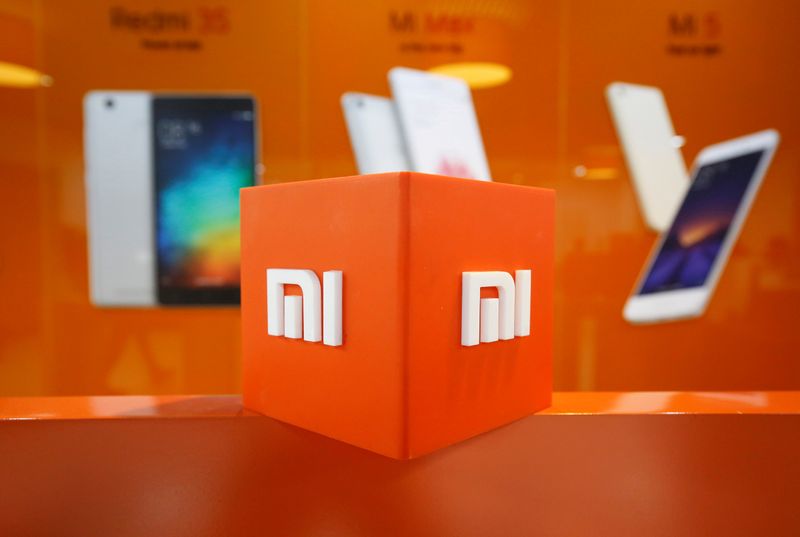(Reuters) - The U.S Department of Defense will remove China's Xiaomi Corp from a government blacklist, a court filing showed, marking a noteworthy reversal by the Biden administration of one of Donald Trump's last jabs at Beijing before exiting office.
The filing stated that the two parties would agree to resolve their ongoing litigation without further contest, bringing to an end a brief and controversial spat between the hardware company and Washington that had further soured Sino-U.S. ties.
A Xiaomi spokeswoman said the company is watching the latest developments closely, without elaborating.
Shares in the company rocketed over 6% in Hong Kong as news of the decision spread. The company's share price has tumbled roughly 20% since it was placed on the blacklist in January in the waning days of the Trump administration.
Department of Defense officials weren't immediately available for comment after U.S. business hours.
The department had designated the firm as having ties to China's military and placed it on a list that would restrict U.S. investment in the company.
Seven other Chinese companies were also placed under similar restrictions.
Xiaomi went on the offensive by filing a lawsuit against the U.S. government, calling its placement "unlawful and unconstitutional" and denying any ties to China's military.
In March, a federal judge temporarily blocked enforcement of the blacklisting, citing the U.S. government’s “deeply flawed” process for including it in the ban.
Soon after that victory, Reuters reported that other Chinese firms placed on the same blacklist were considering similar lawsuits. [L1N2LD2YY]
Xiaomi was among the more high-profile Chinese technology companies that former President Donald Trump targeted for alleged ties to China's military.
Trump had made countering the rise of Beijing a centrepiece of his administration's economic and foreign policy.
Xiaomi's local smartphone rival Huawei Technologies Co Ltd was also put on an export blacklist in 2019 and barred from accessing critical technology of U.S. origin, affecting its ability to design its own chips and source components from outside vendors.
The measures effectively crippled the company's smartphone division.
Later, the U.S. Department of Defense placed similar restrictions on China's Semiconductor Manufacturing International Corporation, a firm key to China's national drive to boost its domestic chip sector.
Prof. Doug Fuller, who tracks China's semiconductor sector at the City University of Hong Kong, says that Xiaomi's win was "low-hanging fruit" for the Biden administration in its efforts to correct the excesses of Trump's China policy as his term ended.
"I think it is a sign that Biden will be a bit softer," he said.

"Calling Xiaomi a Chinese military company was always ridiculous. For firms tied to more legitimate defence concerns, or Xinjiang, however, it will be more difficult."